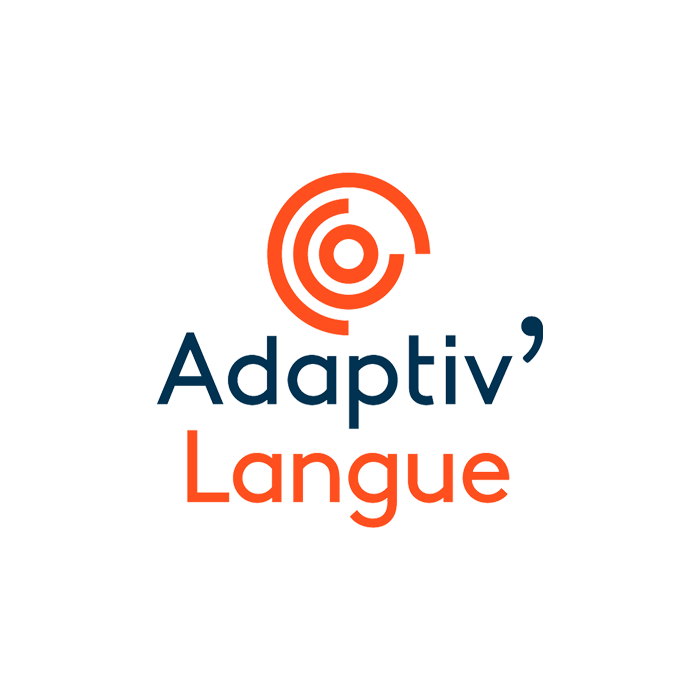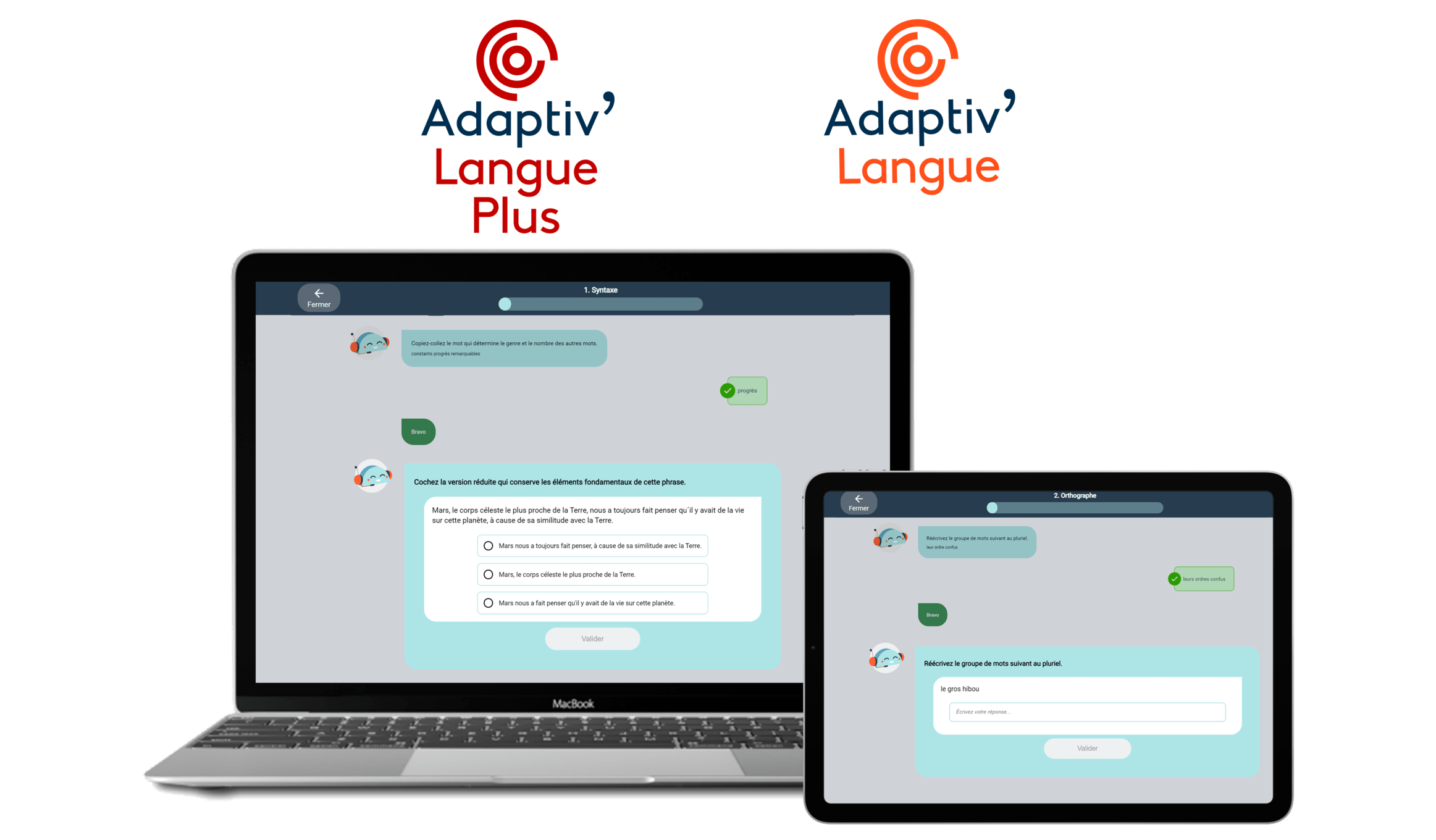
Adaptiv’Langue
is a digital adaptive learning resource for all high school students, for an intuitive mastery of the French language. This resource is designed based on the latest research in linguistics , which sheds light on how language is intuitively constructed from early childhood. Thus, every speaker has an implicit knowledge of the structures and functioning of their own language. Based on this research, Adaptiv’Langue allows you to work intuitively on language skills and build solid foundations in French.
Adaptiv’Langue is dedicated to mastering the fundamentals of 5 areas of language study. Its progression focuses on mastering simple cases of everyday language and then opens up to more complex cases. There are more than 2400 self-correcting exercises divided into the following modules:
Syntax • Spelling • Vocabulary • Verb • Coherence of the written text
Adaptiv’Langue Plus is dedicated to the in-depth mastery of the fundamentals of 5 areas of language study. Its progression takes the fundamentals and leads the student towards mastering more complex cases , with a view to in-depth analysis of texts in high school. There are more than 4000 self-correcting exercises divided into the following modules: Syntax • Spelling • Vocabulary • Verb • Logic

The French language modules are designed by the following researchers and laboratories:
- From oral to written, Dr Denis Alamargot, University of Poitiers
- Contextual understanding, Dr Alda Mari, Research Director, ENS Institut Jean Nicod and Marie Boscaro, doctoral student, Institut Jean Nicod
- Improving written production and editorial activity, Dr Denis Alamargot, University of Poitiers
- Syntax level 1 Dr Carla Soarès, Lecturer-Researcher, Formal Linguistics Laboratory, University of Paris; Dr Lisa Brunetti, Lecturer, Formal Linguistics Laboratory, University of Paris
- Syntax level 2 Pascal Amsili, Professor at the Sorbonne Nouvelle & Lattice University (CNRS/PSL); Carla Soarès, Lecturer-Researcher, Formal Linguistics Laboratory, University of Paris; Lisa Brunetti, Lecturer, Formal Linguistics Laboratory, University of Paris
- Spelling level 1 Dr Alda Mari, Research Director, ENS, Jean Nicod Institute
- Spelling level 2 Pascal Amsili, Professor at the Sorbonne Nouvelle & Lattice University (CNRS/PSL); Carla Soarès, Lecturer-Researcher, Formal Linguistics Laboratory, University of Paris; Lisa Brunetti, Lecturer, Formal Linguistics Laboratory, University of Paris
- Glossary – Verb – Dr Alda Mari, ENS Institut Jean Nicod
- Coherence of the written text Dr Anouch Bourmayan, Lecturer, Sorbonne University
- Logic – Pascal Amsili, Professor at the Sorbonne Nouvelle & Lattice University (CNRS/PSL); Carla Soarès, Lecturer-Researcher, Formal Linguistics Laboratory, University of Paris; Lisa Brunetti, Lecturer, Formal Linguistics Laboratory, University of Paris
- Reading comprehension, Dr Pascale Colé, Teacher-Researcher, Aix-Marseille University,
Cognitive Sciences
Based on recent research in cognitive sciences, our innovative modules are adjusted to your content and complement your collections.

Artificial Intelligence
Interactive and engaging modules to focus attention on the discipline with personalized learning.

UX Interface
A time saving for the teacher thanks to dashboards which summarize and present useful information for the implementation of a differentiation strategy.

A digital companion for educational differentiation
– Exercise courses constantly adapted to each student
-A transdisciplinary resource to develop written expression in all subjects
-Dashboards that provide teachers with useful information about the entire class, groups of students with similar needs, and each student individually
Feedback
Discover our solutions
Want to know more about the resources developed by EvidenceB?
Contact us to test a demo. We will answer all your questions.
